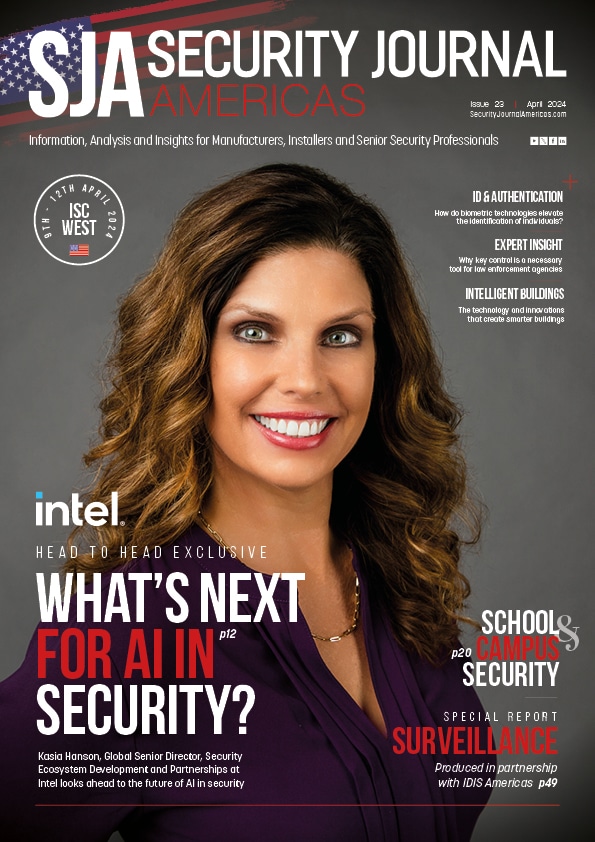EXCLUSIVE: Gaming the system in casinos


Victoria Rees
Share this content
Robert Prady CPP, PSP, CSP, Area Technical Manager, West Business Area, Axis Communications tells Security Journal Americas about the top trends reshaping casino surveillance.
Despite being one of the most heavily regulated and monitored industries in the world, casinos continue to face challenges to their operations; everything from compliance penalties to cheats, thieves and potential violence. A current member of the ASIS Gaming and Wagering Council, Robert Prady offers SJA his thoughts on five key trends impacting the industry: Money laundering, internal theft, active assailants, surveillance data overload and video evidence integrity.
What’s driving casinos to change the way they deal with potential money laundering?
The IRS implemented the Bank Secrecy Act, also known as Title 31, to prevent criminals from using financial institutions to launder money and finance terrorist activities. Under this regulation, US casinos that generate more than $1 million in gross annual gaming revenue are classified as financial institutions and are subject to Title 31 reporting rules. Casinos are required to implement risk-analysis training for employees and develop procedures to track and report high value cash transactions, wire transfers, purchase and redemption of chips, plaques and tokens and other financial activity. Compliance infractions – like failing to fill out an IRS form – could get a casino slapped with $100,000 fine or more.
It all comes down to knowing your players, being able to verify their identities and using all available information to detect suspicious behavior. Since COVID, many casinos have been scanning patron IDs as part of their contact tracing protocols. Appending those snapshots, along with facial recognition video, to a casino’s Title 31 reports provides the IRS with critical evidence needed to investigate and shut down money laundering operations.
When it comes to cheating the house, why should casinos start looking more closely at their own employees?
When people think about casino cheats, they tend to focus on the front of the house. Maybe there’s a player palming a card or swapping out low value chips for high value ones after winning. But megapixel camera resolution and internal controls have gotten so good in recent years that it’s easy to catch those kinds of bad actors. While gaming table cheating has declined, money lost from internal theft is on the rise. So, casinos need to direct more surveillance resources towards monitoring activity at the back of the house.
One of the biggest problems is Player’s Club fraud – employees skimming reward points off a patron’s account or loading up points on a blank card and passing it off to a buddy. To deter further loss, casino management needs to catch dishonest employees in the act. Expanding surveillance coverage in that area and augmenting that with screen capturing software provide casinos with the evidence needed to fire an employee for just cause and avoid a wrongful termination suit.
With uncivil discourse and violence spilling into venues, what steps should casinos be considering to better manage conflicts?
Like any business, casinos need to be more proactive in preventing conflicts and violence, whether major or minor, from happening on their properties. Augmenting surveillance systems with audio analytics to detect and locate the source of specific sounds like gunshot fire, breaking glass or verbal violence can help staff respond faster to an event, de-escalate or contain the situation or if not possible, call for local law enforcement and other responders to help prevent additional casualties.
I can’t stress enough the importance of using technology – audio and video – to pinpoint the location of a disturbance as fast as possible. There was a situation at a casino several years ago – one that didn’t have audio analytics in place. It took security 15 minutes to realize there was an armed assailant inside the property; it took another 15 to figure out what floor the assailant was on.
Analytics are also great for detecting minor disturbances that might negatively impact a guest’s experience and safety. For instance, casinos can put the technology in their hotel hallways to detect and deal with excessive noise before guests call the front desk to complain. In the parking garage, analytics can detect car alarms going off and alert security with a snapshot of the vehicle and its location.
The volume of video generated by a surveillance system can be overwhelming – how can casinos operate surveillance departments more effectively?
The amount of information surveillance cameras capture every day is enormous. To keep pace, surveillance departments need to operate more efficiently. That means greater reliance on in-camera analytics and advanced video system search features to offload operator fatigue without compromising casino security. This allows departments to run smarter with fewer operators watching live video and more people devoted to reviewing archived footage and running reports.
How worried should the gaming industry be about deepfake technology when it comes to surveillance video?
Maintaining the integrity of evidence in this age of deepfakes is an important issue for this industry. In the past, casinos would watermark their video to verify authenticity. Unfortunately, this method isn’t fool proof. A deepfake hacker could circumvent the watermark protection by simply altering the video once it leaves the camera, playing it back through the video playback unit and then watermarking it again. No one would be able to tell that the video wasn’t the original. That’s why casinos are starting to adopt a more effective standard for video authentication: Signed video. The encrypted signature is inserted at the point of capture and tied to that camera’s unique ID.
Is there any overarching advice you can give to surveillance practitioners?
Keep up with the trends that are impacting your industry and how they might affect your surveillance operation. Learn what strategies surveillance teams at other casinos are using to handle these challenges and work with technology vendors who understand the gaming industry and can design solutions to help your staff work smarter, not harder.
This article was originally published in the December edition of Security Journal Americas. To read your FREE digital edition, click here.


